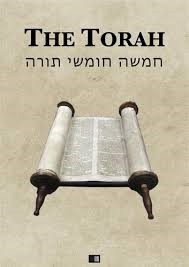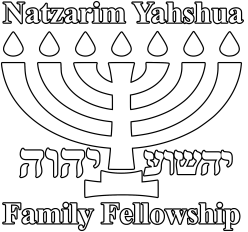
We believe and affirm that “all scripture is breathed out by Elohim and profitable for teaching, for reproof, for setting straight for instructions in righteousness that the man of Elohim might be fitted, equipped for every good work” 2 Timothy 3:14-16.
We understand when “scripture” is mentioned in the Brit HadaSha (New/Renewed Testament), it references the TaNaKha (Torah, Prophets and Writings). We will always default to His word: Genesis to Revelation.
What is The Torah?
Many believe that the Hebrew word “Torah” means “law.” While it is used in some instances to mean that, a more correct interpretation is “teaching” or “instruction”. It is most often used to refer to the five books of Moses, which are known in the west as the Pentateuch; the first five books of the Bible: Genesis (Bereshit), Exodus (Shemot), Leviticus (Vayikra), Numbers (Bemidbar), and Deuteronomy (Devarim). These are the teachings and instructions that Yahweh gave to His people through Moses in order to provide a way of life that was honoring to Him and beneficial for them.
The first five books of scripture compose the foundation by which the rest of scripture is to be interpreted and the beginning of Yah’s plan for His people. Many these days would like to interpret the Old Testament in light of the New Testament, but that is not the way the Bereans did it (Acts 17:11 ff.). They searched the Scriptures (the Old Testament/Tanakha) that had already been written and vetted to find out if the message that the Apostles were preaching was indeed true. Torah still serves this purpose for us today (not for our salvation but because of our salvation and our love for Yah and keeping His instructions within us).
The Torah is Yahweh’s plan for us, and we are blessed when we take part in that plan.
Why read the Torah on a yearly cycle?
From the very beginning of our faith as believers in Yahshua, the Torah (the 1st five books in the Bible) as well as the prophets and the writings, have been an integral part of Yah’s plan.
He said, “Do not think that I came to destroy the Law or the Prophets. I did not come to destroy but to fulfill. For assuredly, I say to you, till heaven and earth pass away, one jot or one tittle will by no means pass from the law till all is fulfilled.” (Matthew 5:17-19). This is clearly saying that Yahweh’s commandments are still in effect. The first-century believers learned and practiced them. So should we.
What was the method of learning the Torah that was prescribed by the council of Jerusalem in Acts 15? “Known to God from eternity are all His works. Therefore I judge that we should not trouble those from among the Gentiles who are turning to God, but that we write to them to abstain from things polluted by idols, from sexual immorality, from things strangled, and from blood. For Moses has had throughout many generations those who preach him in every city, being read in the synagogues every Sabbath.” (Acts 15:18-21). What this is saying is that in order to have fellowship with Jewish believers, the Gentile believers were first required to do four things. But those were not the only four things that were expected of them as believers, only as new converts. The rest of it they would learn as they went to the Synagogue every Sabbath day.
The tribe of Judah (the Jews) has consistently read the Torah in cycles throughout history. Believers in Messiah Yahshua were kicked out of the synagogues when historical tensions became severe between them and the Jewish Religious leaders at that time (John 16:2). However, back in the days of Yahshua and the apostles, there was a method of reading the Torah that originated in the 6th century BC and has survived to this day. This is the yearly system of Torah portions (Parasha).
The Parasha is read every week on the Sabbath. The tradition began in Judaism but is not commanded in Scripture, yet it is a really good tradition to bring believers in Messiah Yahshua much closer to their ancestral roots. According to Acts 15, the disciples in the first century were taking advantage of it. So why shouldn’t we?
Shalom ve Chein (Peace and Grace)!
